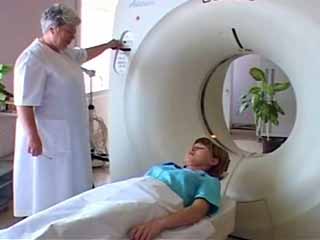No Danger No Concern No Sanity (2)
 Paper information, the optimum means by which to capitalize on human error, characterize most present medical information methods. The results are incorrectly prescribed drugs, service delays, and lost information, which collectively eat about 30-50 % of U.S. healthcare spending—a hefty $1 trillion per yr.1 Unbeknownst to many, medical errors surpass cancer and other lethal ailments because the number one leading cause of loss of life within the U.S.2 Furthermore, the implicit costs many patients face—having to undergo a labyrinth of telephone calls, pink tape, and paperwork to get in touch with the individual in charge of their well being—make the medical system a trouble to deal with, and consequently one thing many people want to avoid.
Paper information, the optimum means by which to capitalize on human error, characterize most present medical information methods. The results are incorrectly prescribed drugs, service delays, and lost information, which collectively eat about 30-50 % of U.S. healthcare spending—a hefty $1 trillion per yr.1 Unbeknownst to many, medical errors surpass cancer and other lethal ailments because the number one leading cause of loss of life within the U.S.2 Furthermore, the implicit costs many patients face—having to undergo a labyrinth of telephone calls, pink tape, and paperwork to get in touch with the individual in charge of their well being—make the medical system a trouble to deal with, and consequently one thing many people want to avoid.
A few of these could contribute to lack of job. So no, I do not think it helps with differential prognosis. It could help with documenting the patient’s real difficulties with work so they …

 So you’ve be advised you want additional testing after your mammogram. Handling the nervousness might be rough.
So you’ve be advised you want additional testing after your mammogram. Handling the nervousness might be rough. On paper many individuals at all times assume that the best deal to go for is the low deductible well being plan. There are totally different plans accessible because there are totally different health wants and different individuals will need totally different plans. Having mentioned this, it may be unsuitable to simply say outright that plan A is better than plan B. We’re saying this in respect of the benefits every plan provides and the price of sustaining every plan. You may solely attain a useful conclusion on which plan could be greatest for you after you might have thought of a couple of elements.
On paper many individuals at all times assume that the best deal to go for is the low deductible well being plan. There are totally different plans accessible because there are totally different health wants and different individuals will need totally different plans. Having mentioned this, it may be unsuitable to simply say outright that plan A is better than plan B. We’re saying this in respect of the benefits every plan provides and the price of sustaining every plan. You may solely attain a useful conclusion on which plan could be greatest for you after you might have thought of a couple of elements. In accordance with several research it has been proved that the heart is out at a higher threat in the course of the winter season. This happens because of a variety of components. Chilly temperature leads to a high blood pressure in addition to a rise in the level of protein. This results in excessive threat of blood clotting. When the climate is chilly, human coronary heart works tougher to keep up the body heat and keep the arteries tightened. This reduces the daring circulate and oxygen provide to the this causes a heart assault, mainly in previous-age folks and those who have already got any coronary heart illness reminiscent of High BP, blocked coronary arteries and many others.
In accordance with several research it has been proved that the heart is out at a higher threat in the course of the winter season. This happens because of a variety of components. Chilly temperature leads to a high blood pressure in addition to a rise in the level of protein. This results in excessive threat of blood clotting. When the climate is chilly, human coronary heart works tougher to keep up the body heat and keep the arteries tightened. This reduces the daring circulate and oxygen provide to the this causes a heart assault, mainly in previous-age folks and those who have already got any coronary heart illness reminiscent of High BP, blocked coronary arteries and many others. Screening, Assessment, and Drug Testing Chart – Provides validated tools to guide screening, analysis, and referral to treatment of patients with a substance use dysfunction.
Screening, Assessment, and Drug Testing Chart – Provides validated tools to guide screening, analysis, and referral to treatment of patients with a substance use dysfunction.












